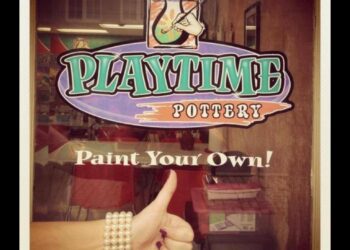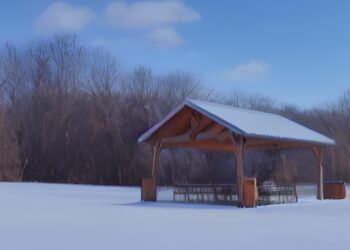The Pawpaw Tree, a native species often overlooked, is making a triumphant return in Duncansville, thanks to the dedicated efforts of local conservationists, Jordan and Jennarose and community members. This tree, known for its unique fruit that tastes like a blend of mango and banana, is being reintroduced into the local ecosystem through the creation of an edible, medicinal, and ecological rain garden at Duncansville Memorial Park.
The park, described as a “hidden gem” by Mayor Eric Fritz, has recently undergone a transformation with the help of the Blair County Conservation District, a crew from the county’s juvenile probation program, and more than a dozen community members. Together, they have created a rain garden that not only enhances the park’s beauty but also serves a practical purpose. The garden, filled with native plants, bushes, and trees, helps prevent flooding and filters water, creating a vibrant oasis of color that provides food for humans, caterpillars, birds, and more.
Among the variety of plants in the garden, the Pawpaw Tree stands out. Originating from the West Virginia town of the same name, the Pawpaw Tree is the only plant that Zebra Swallowtail butterflies lay their eggs on. Despite being native to the area, the tree is rare and is found more often in the southern part of the state around Pittsburgh and in the Susquehanna River Basin near York to the east. The reintroduction of the Pawpaw Tree in Duncansville is hoped to bring back these butterflies, adding another layer of biodiversity to the local ecosystem.
The rain garden project is a testament to the power of community involvement and the importance of local conservation efforts. It showcases how simple concepts, like planting native species, can have far-reaching effects on the local ecosystem, contributing to biodiversity, preventing flooding, and even providing edible produce.
The Pawpaw Tree, with its unique fruit and its role in the lifecycle of the Zebra Swallowtail butterfly, is a symbol of these efforts. It represents the potential of what can be achieved when a community comes together to improve their local environment. As the Pawpaw Trees grow and mature in Duncansville Memorial Park, they will stand as a testament to the power of community-led conservation and the delight of discovering the unexpected in one’s own backyard.
Jordan and Jennarose, the dynamic duo behind the local organization The Wild Ones, have been instrumental in leading the effort to plant the fruit forest in Duncansville Memorial Park. Their vision extends beyond the park, aiming to create a network of bike trails that connect the edible gardens in Bellwood, Altoona, Hollidaysburg, and Duncansville. This network of trails would not only provide a scenic route for cyclists but also a literal path to sustainable living and community involvement.
Their efforts are akin to the growth of the Pawpaw Tree. Just as the tree starts from a small seed and grows into a provider of nourishment for various species, their initiative started with a simple idea and has the potential to nourish the community in multiple ways. The Pawpaw Tree, with its unique fruit and its role in the lifecycle of the Zebra Swallowtail butterfly, symbolizes the interconnectedness of all elements in an ecosystem, much like the interconnectedness of the communities through the proposed bike trail network.
Jordan and Jennarose’s dream of creating these edible gardens and connecting them through a bike trail is not just about promoting sustainable living. It’s also about fostering community spirit, encouraging residents to take ownership of their environment, and creating spaces that are not just visually appealing but also serve a practical purpose. This vision aligns with Mayor Fritz’s plans for park improvements and his hope that the rain garden is the start of greater things to come for Duncansville.
In the same way that the Pawpaw Tree provides food for humans and caterpillars alike, Jordan and Jennarose’s initiative aims to provide benefits for all members of the community. The proposed bike trails would draw in visitors, boosting local businesses, while the edible gardens would provide a source of fresh, locally grown food. Just as the Pawpaw Tree stands out in the rain garden, the Wilds’ initiative stands out as a beacon of community-led conservation and sustainable living in Duncansville. It’s a testament to what can be achieved when a community comes together with a shared vision for a sustainable and interconnected future.
If you are interested in supporting their work on the bike trails, please consider signing the petition here: https://actionnetwork.org/petitions/greenway-trail-system-through-blair-county








